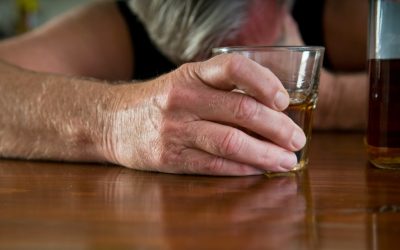Preparations include removing addictive substances from your home as well as eliminating triggers in your life that may make you more likely to use those substances again. During the pre-contemplation and contemplation stages of change, a harm reduction approach may be helpful. Harm reduction recognizes that while total abstinence is the goal, it is a process that takes time. Although quitting entirely is the best path to wellness, reducing or eliminating the most harmful substance use or https://dmoon.ru/obzor418.shtml behavior is a huge improvement and will greatly reduce the harm caused. Addiction leads to changes in the brain that make quitting more difficult.
Consider seeking help from a health professional or free support group. These groups meet regularly, some even via video chat, and can offer support to overcome addiction. While it’s possible to overcome addiction without help, you may find it beneficial to seek help. Most people with addiction attempt to quit several times before they succeed in the long run. Food addiction can cause physical harm and lead to chronic health conditions like obesity and type 2 diabetes. Though the term addiction is often thrown around lightly, having a true addiction is a serious condition that typically requires treatment to overcome.
Why Is Adolescence Such a Crucial Time for Preventing Drug Abuse?
Such triggers are especially potent in the first 90 days of recovery, when most relapse occurs, before the brain has had time to relearn to respond to other rewards and rewire itself to do so. Learning what one’s triggers are and acquiring an array of techniques for https://newhomeeasy.com/home-ideas/page/2 dealing with them should be essential components of any recovery program. Although addiction tends to cut people off from longtime friends, social support is a significant predictor of recovery. They may know something about the person’s deepest aspirations and voice them as a reminder that can help the person remain on the road to recovery.

Lifestyle Quizzes

They may feel that addiction is a myth and they can quit any time they want or that they are an exception to the rule. This can also occur with behavioral addictions involving activities such as eating, sex, gambling, shopping, and exercise. You may have heard the myth that addiction is inescapable, but that’s not true. In fact, more people succeed at beating their addiction than fail. We’ll walk you step-by-step through an addiction recovery plan so you can start changing your life for the better today. Additionally, we’ll help you understand why addictions are hard to overcome and how to plan for common problems that may pop up.
How Can I Tell if I Need Substance Abuse Help?
- Those who are most invested and motivated to change will have the best chance of success.
- That’s called a “dopamine deficit state,” and the cycle that leads us there can actually lead to depression, anxiety, irritability and insomnia.
- There are healthier ways to keep your stress level in check.
- The best way to handle a relapse is to take quick action to seek help, whether it’s intensifying support from family, friends, and peers or entering a treatment program.
Take our free, 5-minute “Do I Have a Substance Misuse Disorder? ” self-assessment below if you think you or someone you love might be struggling with a substance use disorder (SUD). The evaluation consists of 11 yes or no questions that are intended to be used as an informational tool to assess the severity and probability of an SUD. The test is free, confidential, and no personal information is needed to receive the result.
Starting the Process
It’s hard to leave addiction behind without constructing a desirable future. The best way to handle a relapse is to take quick action to seek help, whether it’s intensifying support from family, friends, and peers or entering a treatment program. One advantage of mutual support groups is that there is likely someone to call on in such an emergency who has experienced a relapse and knows exactly how to help. Research has identified relapse patterns in adolescents and adults recovering from addiction.

Coping with Uncertainty Meditation

Call your sponsor, attend a meeting, reach out to your therapist. All of these things will help you understand what happened and how to move forward from it. Finally, making meetings a priority will be critical in long-term recovery. Whether you join a 12-step recovery support group or continue your rehab facility’s aftercare programs, these support groups can provide an inexplicable level of support and companionship.
Food addiction is a problem that rarely resolves on its own. Unless you make a conscious decision to deal with it, chances are it will worsen over time. Food addiction is similar to several other disorders, including binge eating disorder, bulimia, compulsive overeating, and other feeding and eating disorders. Learn more ways to explore your relationship with alcohol. You may also consider joining an online support group to help you feel less alone. Feeling at your best physically can boost resilience and emotional strength, equipping you to weather challenges that trigger the desire to drink.
- Recovery, like addiction itself, relies on neuroplasticity.
- This process is called the ‘addiction cycle,’ where a seemingly harmless habit can turn into a harmful dependence and eventually lead to chronic addiction.
- Becoming more aware of your alcohol triggers and reasons for drinking can help you plan ways to help manage the urge to drink.
- American Addiction Centers (AAC) is committed to delivering original, truthful, accurate, unbiased, and medically current information.
- Counselors may select from a menu of services that meet the specific medical, mental, social, occupational, family, and legal needs of their patients to help in their recovery.
Place obstacles between you and your addictive behaviors
- Unfortunately, addictive solutions are easily accessible and obtain “results” quickly.
- Addiction can feel like a never-ending spiral, but it doesn’t have to be.
- These effects are caused by brain neurotransmitters like dopamine.
- Drug addiction or substance use disorder (SUD) is a chronic brain disease.
- Her fields of interest include Asian languages and literature, Japanese translation, cooking, natural sciences, sex positivity, and mental health.
- From there, preparing, planning, finding support, and talking to a healthcare provider can help put you on a path to a successful recovery.
Understanding how a simple act can lead to a catastrophic outcome requires us to examine the stages that lead https://stephanis.info/2019/12/02/6-facts-about-everyone-thinks-are-true-7/ to addiction. There, we can find complex processes beneath the surface contributing to addiction. It gradually becomes a permanent resident, disrupting everyday life while pretending to be normal. Shift perspective to see relapse and other “failures” as opportunities to learn. The prospect of change engages people in an inner dialogue about hope, disappointment, and accountability. There are three ways to “bind” yourself from – or place limits on – the behavior to which you’re addicted.
